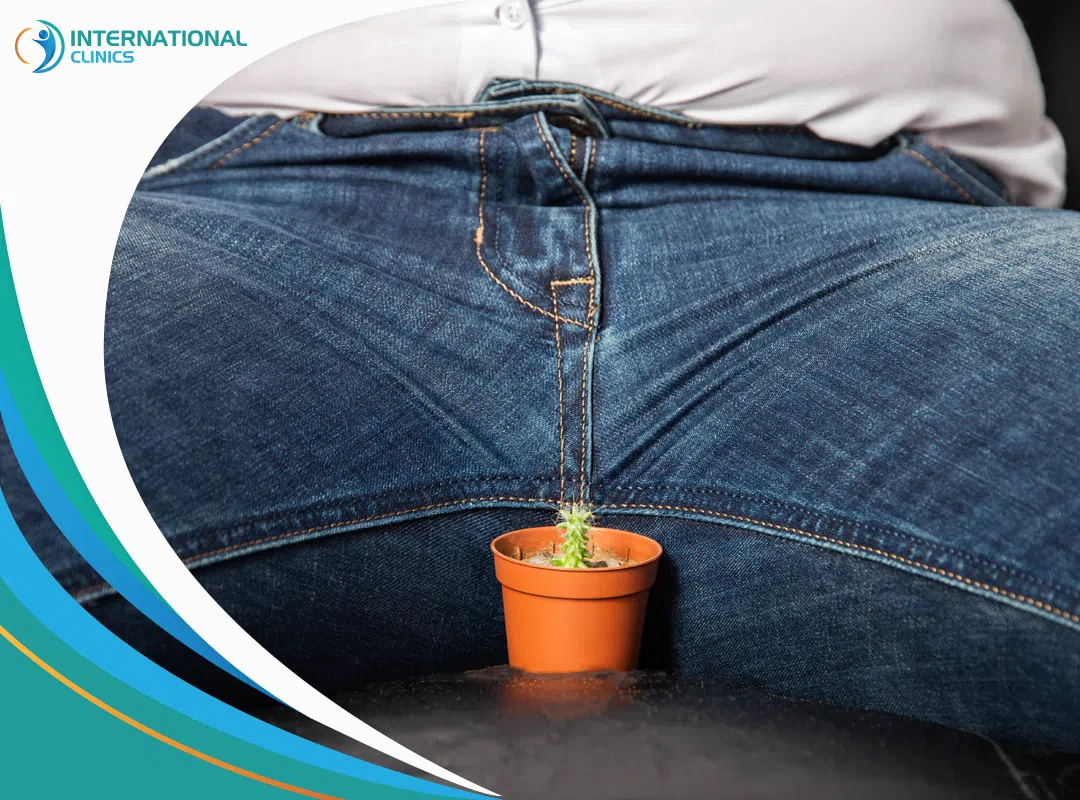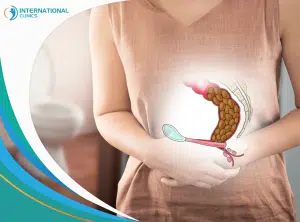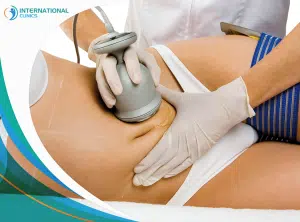The issue of impotence among men is sensitive and a source of embarrassment, but as with any other medical topic, we must discuss it and show our patients its causes and treatment.
Erectile dysfunction (ED) or impotence refers to the inability to get or maintain a penile erection enough for satisfactory sexual intercourse.
The condition is highly prevalent among certain age groups, affecting around 30 million individuals in the United States alone.
Indeed, the prevalence of the condition increases with age, affecting nearly 40% of men over the age of 40 and up to 70% of men in their 70s.
Unfortunately, ED can significantly impact one’s quality of life and emotional well-being. It can cause distress, anxiety, and relationship problems.
However, it’s a treatable condition in most cases through medications, devices, counseling, and even simple lifestyle changes.
With proper diagnosis and treatment, most men can easily overcome ED and regain their sexual function.
Understanding Erectile Dysfunction: Causes and Risk Factors

The potential causes and risk factors behind developing erectile dysfunction may include:
Physical Causes
Diseases and disorders such as diabetes, heart disease, obesity, high blood pressure, high cholesterol, Parkinson’s disease, and multiple sclerosis are some of the physical causes that may lead to ED.
The reason is that these diseases can impact blood flow, nerve function, or hormone levels in the body. Structural penile abnormalities or deformities resulting from injuries can also cause ED.
Psychological Causes
Mental issues such as stress, anxiety, depression, relationship problems, and other mental health conditions can interfere with sexual arousal, desire, and performance, which could pave the way for ED or impotence.
Lifestyle Habits
Such bad habits include alcoholism, smoking, substance abuse, lack of exercise, and poor nutrition. All these can indeed negatively impact sexual health and function.
Other Factors
Factors such as prostate cancer treatments, antidepressants, blood pressure medications, and tranquilizers can also lead to ED. Besides, as men get older, erectile function declines naturally due to lower testosterone levels and reduced blood flow. However, ED isn’t an inevitable part of aging.

Signs and Symptoms of Erectile Dysfunction
Simply put, erectile dysfunction (ED) decreases the ability of men to get or keep an erection. The symptoms and signs of erectile dysfunction can vary from one man to another but generally involve:
Difficulty Getting an Erection
A man with ED may find it very difficult or even impossible to get an erection, even with intense sexual stimulation. In other terms, he may struggle to get hard or to keep an erection long enough for sex.
Reduced Erectile Rigidity
Even if a man can get an erection, it may not be firm or rigid enough to allow penetration. Besides, the erection may feel soft or just “semi-firm”.
Difficulty Maintaining an Erection

A man may be able to get to the level of erection but then lose it prematurely (before or shortly after sexual penetration). The erection may not also last long enough to complete intercourse.
Need for More Direct Stimulation
Due to reduced sensitivity in the penis, a man with ED often requires more direct physical stimulation to get and keep an erection. In other words, simple or soft foreplay may not be enough.
Less Intense Orgasms
Orgasms may feel decreased in intensity or length due to the lack of full erection. Ejaculation may also be affected, which may pair the problem with premature ejaculation.
Stress, Anxiety, and Lack of Confidence
Performance anxiety and other psychological issues commonly develop along with ED. Men may feel embarrassment, shame, or low self-esteem due to the condition.
Reduced Sexual Desire
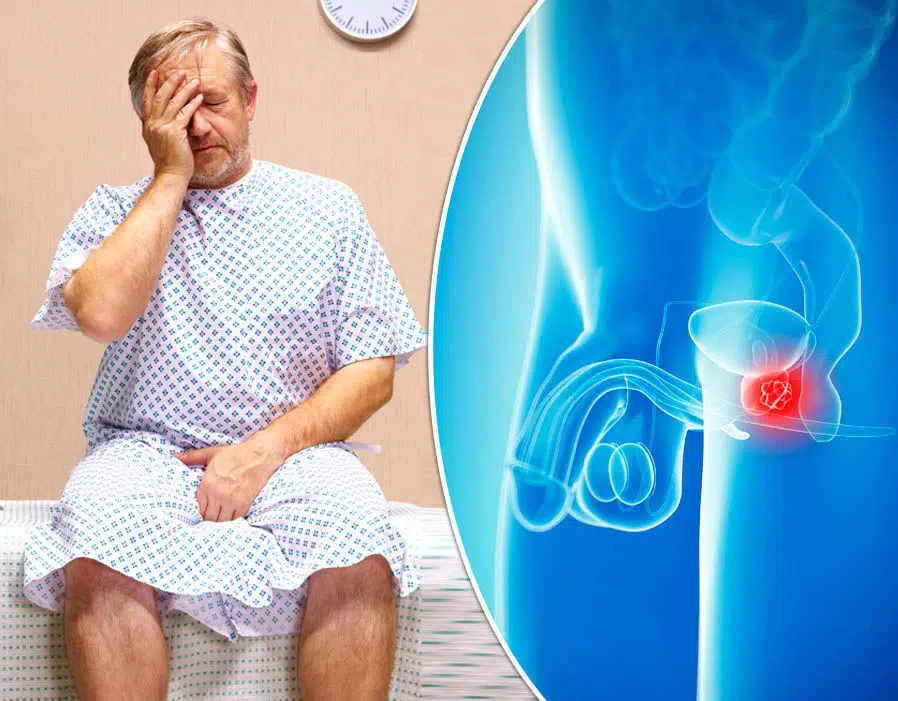
Due to ED and loss of confidence, many men experience a decline in libido and interest in sex. However, low desire isn’t necessarily a primary cause of ED.
Relationship Difficulties
Problems with sexual performance can strain a relationship with a sexual partner. Communication often deteriorates and bonding declines.
Diagnosis of Erectile Dysfunction
As many possible causes exist, diagnosing erectile dysfunction involves a process of “exclusion”. As mentioned before, ED has many potential underlying causes, including both physiological and psychological issues.
A physician (usually a urologist) will conduct a series of assessments and tests to rule out various medical conditions that could cause ED. The diagnostic process may include:
- Medical history: Your doctor will ask about your health and any chronic illnesses, surgeries, or medications that could be contributing to ED. The discussion may include a review of your sexual history, such as rapidity of onset, severity, presence of nocturnal erections, etc.
- Physical exam: This includes an examination of the genitals and a digital rectal exam to assess nerve function and check the prostate. Evidence of underlying conditions like heart disease, diabetes, or neurological problems can aid diagnosis.
- Blood tests: This is done to assess various hormone levels and check for conditions like diabetes, heart disease, kidney problems, and low testosterone. Testing cholesterol, blood sugar, liver enzymes, and thyroid hormones may reveal an underlying cause of ED.
- Urinalysis: Urinalysis checks for signs of diabetes and other urological disorders that can cause ED. It also helps assess for infections.
- Psychological exam: A mental health assessment can identify depression, anxiety, stress, and other psychological factors that may be contributing to ED.
The good news is that many treatment options are available for ED. The appropriate solution, however, depends on the man and the specific cause of his ED.
Some men may need a combination of treatments to produce optimal results. Potential ED treatment options include:
Lifestyle Changes
Simple things like good diet, good exercise, quitting smoking, and reducing alcohol intake can help improve ED in some men. Managing stress, anxiety, and depression may also help.
Oral Medications
Phosphodiesterase type 5 (PDE5) inhibitors like Viagra, Sildenafil, Tadalafil, Vardenafil, Cialis, and Levitra are highly effective oral medications that improve blood flow to the penis. In fact, they are the first-line medical treatment for most men.
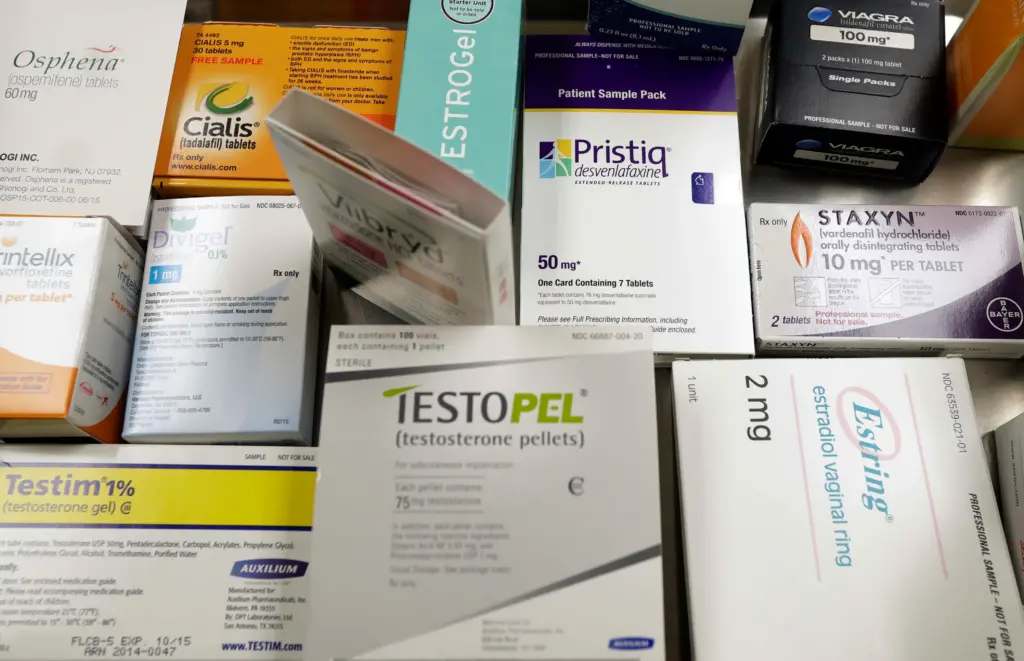
Vacuum Erection Devices
These involve using a vacuum pump to mechanically produce an erection by increasing blood flow to the penis. The man should apply a constriction ring to maintain the erection.
Penile Injections
Drugs like Caverject and alprostadil can be injected directly into the penis to stimulate an erection. This works well but can be uncomfortable for many men.
Testosterone Replacement
If low testosterone is causing ED, testosterone gel, patches, or injections can successfully treat ED, at least in some men.
Penile Implants
Surgically implanted devices like semi-rigid rods and inflatable prostheses can restore erectile function in men with irreversible ED. This option has high satisfaction rates.
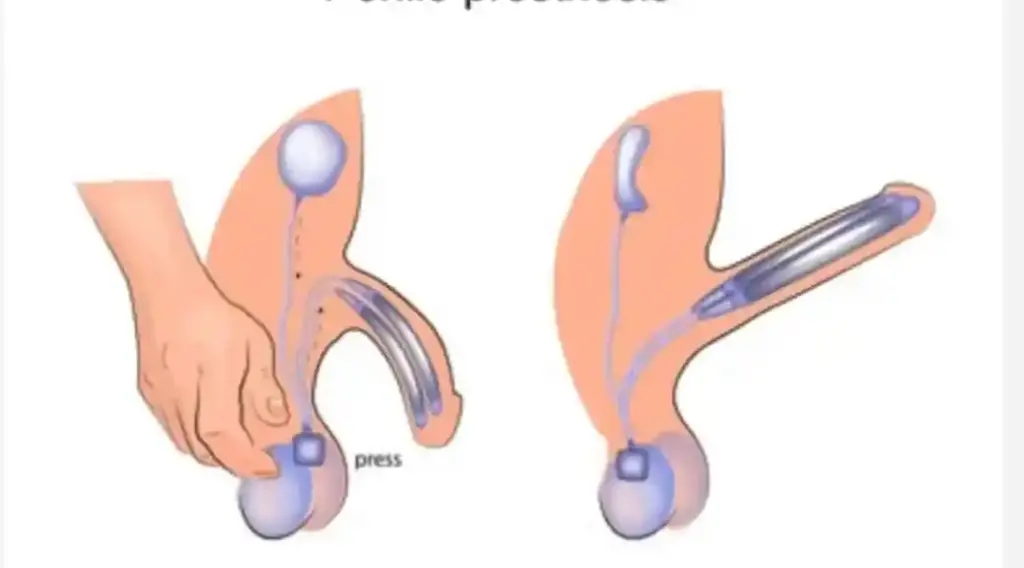
Psychotherapy
Counseling and sex therapy from a psychologist or psychiatrist can help manage psychological issues contributing to ED. Relationship counseling may also help.
Alternative Medicine
Some men find benefit in acupuncture, herbal remedies, Ayurvedic medicine, or other alternative therapies. More research is needed, however, to prove the efficacy of such options.
Lifestyle Modifications for Erectile Dysfunction
Making healthy lifestyle changes might be enough to improve erectile dysfunction in men with no clear physiological cause.
The most important lifestyle factors are diet, exercise, smoking, alcohol use, and stress management. Some tips for lifestyle changes include:
- Exercise regularly: Aim for 30-60 minutes of cardiovascular exercise 4-5 times per week. Walking, jogging, swimming, and strength training can enhance blood flow.
- Follow a heart-healthy diet: Eat more fruits, vegetables, whole grains, fish, and healthy fats. And at the same time, try to avoid saturated fats, trans fats, processed foods, salt, and sugar.
- Quit smoking: Smoking constricts blood vessels, which impairs blood flow in penile arteries and veins. Quitting this habit improves erectile function.
- Limit alcohol: At least, try to drink in moderation (no more than 1-2 servings a day). Too much alcohol can lower testosterone and contribute to ED.
- Reduce stress: Try yoga, meditation, deep breathing, or other stress-relieving activities. Seek counseling if needed. Manage chronic stress.
- Get enough sleep: Aim for 7-9 hours per night. Lack of sleep has been linked with reduced testosterone.
- Kegel exercises: Strengthening pelvic floor muscles through Kegel exercises can enhance erectile strength. Perform daily.
Psychological Impact of Erectile Dysfunction
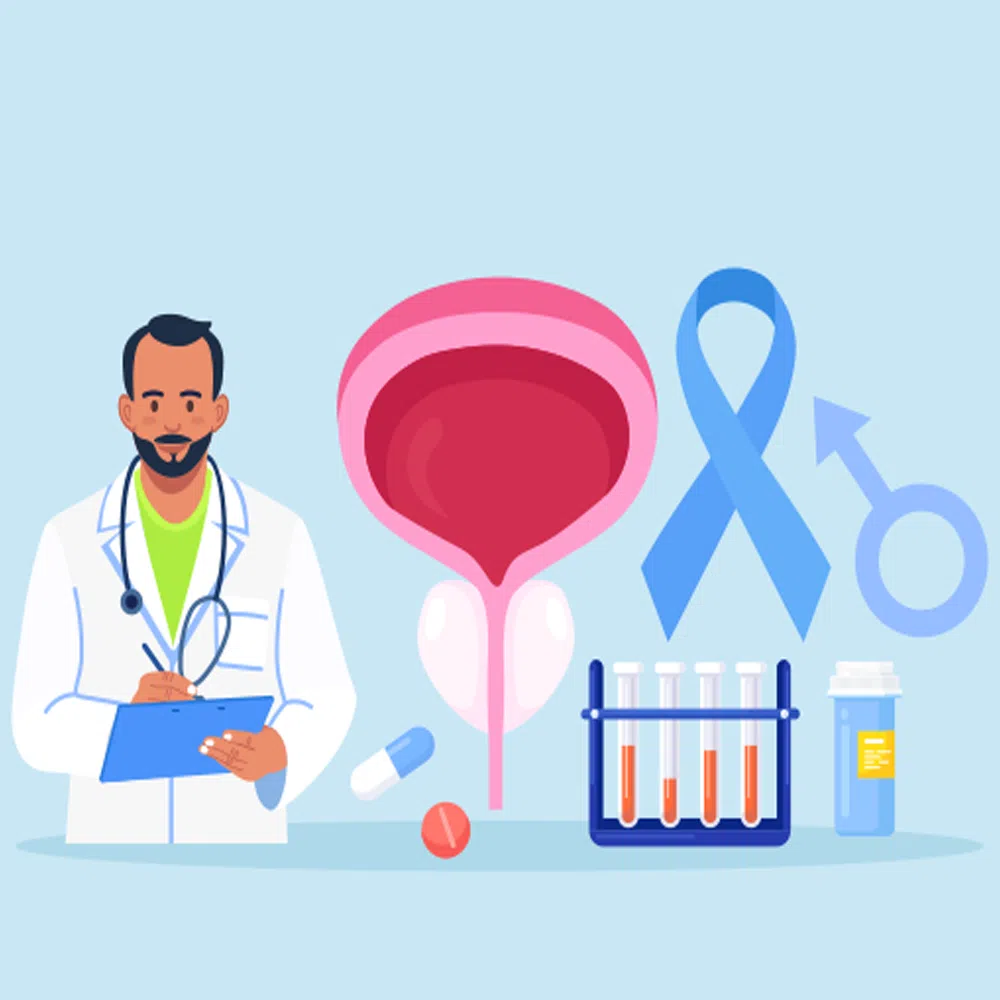
The impact of impotence on emotional health and self-esteem is profound and even extreme in some cases.
Men with ED frequently describe feelings of anger, frustration, sadness, embarrassment, and inadequacy.
Mental health issues like depression and anxiety often accompany ED. Psychological effects may also include:
- Lowered self-esteem and confidence: Men may see themselves as “less of a man”, which makes them feel insecure and deficient.
- Performance anxiety: Fear and anxiety about sexual failure could lead to avoidance of intimacy. Maintaining erections becomes a major concern.
- Depression: Due to loss of sexual function and self-esteem, depressive symptoms are common with ED.
- Relationship stress: Problems with intimacy, communication, and bonding strain the relationship with a partner, which makes conflicts more likely to occur.
- Social isolation: Out of embarrassment, some men withdraw from all social settings and interactions.
- Anger and irritability: Frustration over loss of sexual function can manifest as anger, conflict-seeking, and defensiveness.
- Hopelessness: After failed attempts to treat ED, men may start to believe nothing can be done. A sense of helplessness prevails.
- Suicidal ideation: In severe cases, due to major depression and feeling life has lost purpose, suicidal thoughts may develop.

Erectile Dysfunction and Relationships
Between partners, ED could inflame a lot of intimate and emotional problems. Some effects may include:
- Decline in intimacy and affection: As sex becomes less frequent or absent, emotional and physical intimacy often declines and partners may feel distanced.
- Blaming and shaming: The partner may interpret ED as a sign they are no longer desired or attractive.
- Communication breakdown: The couple may find it better to avoid discussing their sexual problems as talking about ED leads to discomfort, withdrawal, and conflict.
- Cheating: In some cases, the man with ED may seek sexual satisfaction outside the circle of the relationship. The partner may also look elsewhere to fulfill needs.
- Separation and divorce: With intimacy goes out of the window and communication deteriorates, partners feel unsatisfied. Ending the relationship may seem like the only option.
Coping Strategies and Support for Erectile Dysfunction

Coping with ED is certainly possible with the following options:
- Relationship counseling: For couples, counseling could help foster communication and intimacy.
- Sex therapy: Sex therapists help patients and couples overcome anxieties, fears, and frustrations related to ED.
- Online forums: Anonymous online communities allow men to share experiences and advice about ED treatment options.
- Support groups: In-person support groups encourage men to discuss ED concerns in an understanding, judgment-free environment.
- Mental health services: Psychologists and psychiatrists can address the emotional toll of ED through counseling and medications for conditions like depression.
- Mobile apps: Some apps provide information, tools for finding help, and discreet support chats with experts and others experiencing ED.
- Educational resources: Reputable websites, books, videos, and podcasts offer insights on living with and overcoming ED.
FAQs About Erectile Dysfunction
Diagnosis involves a medical history, physical exam, psychological evaluation, and lab tests to check hormones and illnesses.
Treatment options include oral medications like Viagra or Cialis, penile injections, vacuum erection devices, testosterone therapy, and penile implants.
Yes, medications like sildenafil (Viagra), tadalafil (Cialis), and vardenafil (Levitra) are highly effective for most men when used properly.
Common side effects are headache, flushing, nasal congestion, nausea, diarrhea, dizziness, rash, and vision changes. Rare but serious effects include priapism, hearing, and vision loss.
Yes, improving diet, increasing exercise, quitting smoking, reducing alcohol use, and managing weight, stress, and chronic health conditions can help treat ED in many cases.
Often yes. ED can be an indication of diabetes, hypertension, vascular disease, or other undiagnosed conditions.
ED risk increases significantly with age, with some degree of ED affecting nearly all men by age 70. Age-related changes in blood vessels, hormones, and nerves can contribute to the matter.
Conclusion
With the data available, we can say that erectile dysfunction is a very prevalent problem affecting millions of men worldwide.
While frequently embarrassing to discuss, ED shouldn’t be ignored or feared. Seeking professional help for diagnosis and treatment is important as ED is often indicative of an underlying health condition.
With proper diagnosis, ED can successfully be managed through various medications, devices, counseling, and lifestyle modifications.
The future is promising for men living with erectile dysfunction as new treatments are expected to be launched.
International Clinics help men from all around the world find permanent treatments for ED. You can contact us right away to learn more about our offers.
